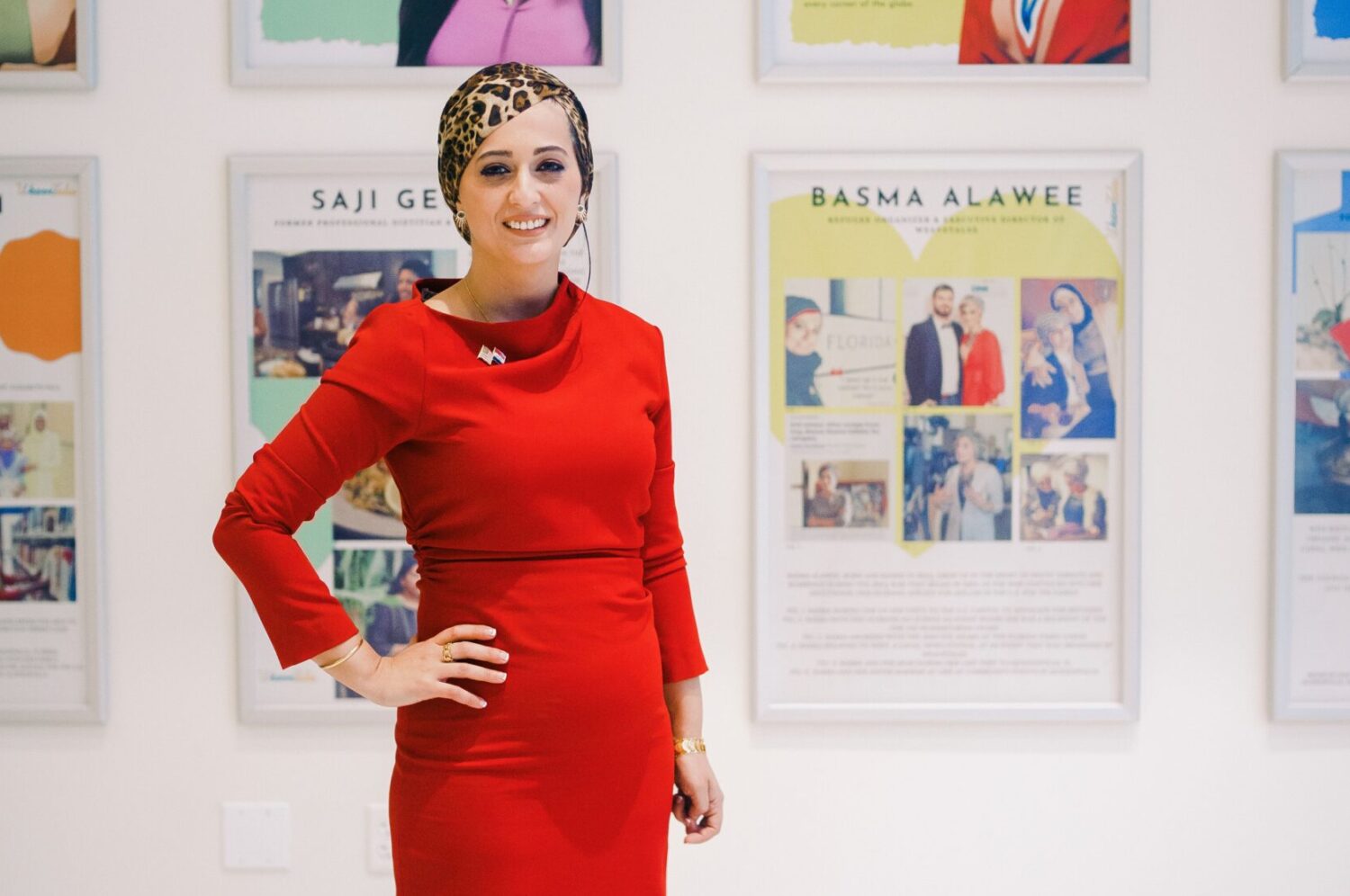Many (or most) Americans descend from immigrants. But being a refugee—one who has fled his or her homeland—is a more complicated experience. Even though Jacksonville is a primary hub for refugees entering Florida through the U.S. Department of State, there is still widespread misunderstanding about refugees.
Enter WeaveTales.
Led by Basma Alawee, WeaveTales uses the profound experience of storytelling by individual refugees to change people’s perceptions. Alawee, an engineer by trade, came to the United States from Iraq in 2010 following threats to her family because of her husband’s work with the U.S. military.
Upon arrival, she was shocked to hear some residents’ rude and offensive comments about her appearance as a traditional Muslim woman, especially after her family sacrificed so much to support the US.
But that experience sparked her desire to be a champion for other refugees. She learned that when she had the opportunity to tell her story, most people began to understand and sympathize with her. As she met other refugees and heard their stories, she realized that storytelling has power.
Begun in 2019, WeaveTales has helped more than 300 refugees tell their stories. Each storyteller brings the audience along on a personal journey as they recount how they were forcibly displaced from their homeland. They talk candidly about how they ended up in Jacksonville, what their lives have been like, and how they hope to contribute to the community.
“There’s a huge amount of forced displacement in the world—over 100 million, according to a report from the United Nations High Commissioner for Refugees— and it’s so important to understand the root causes of migration,” noted Alawee. “That’s why we need to educate our community and advocate for policies that are inclusive. Understanding how and why people become refugees can help do that.”
While WeaveTales is only a few years old, this volunteer-led nonprofit has been expanding its reach. In 2020, they created the New American Speakers Program, and three cohorts of storytellers are now able to go out in the community. WeaveTales expects to start two additional cohorts of speakers in 2023.
The nonprofit is also finding new ways to spread its message – including a redesigned (weavetales.org) website and a ‘Journey to Jacksonville’ art exhibit which has traveled to several locations, bringing the refugee experience into cultural spaces.
WeaveTales was also featured at a recent Donors Forum of Northeast Florida presentation on the issue of local refugee resettlement, which was well-received.
“When examining Refugee Resettlement efforts across the First Coast, who better to illuminate the opportunity and challenges of the global bureaucracy than those who have first-hand experience,” noted Tom Caron, Vice President, Donor Services. “As Basma makes clear, it is critical to center refugee voices in any conversation regarding immigration.”
Now WeaveTales hopes to provide workforce solutions by helping to close the gap between refugees and businesses. The Community Foundation made a $25,000 grant to WeaveTales in 2022 to implement Diversity, Equity, Inclusion and Belonging workshops in the community to help create a more welcoming workforce environment.
Often, refugees are going to work for small businesses who desperately need employees, but the proprietors don’t have the resources, training or bandwidth needed to help the refugee succeed. These workshops, along with other data-driven, field-tested solutions, could be a win-win proposition for the refugees and the employer.
Although far from her engineering career, Alawee has embraced her new role as a nonprofit leader and a rising star in the immigrant and refugee rights movement. She’s come a long way from her earliest days, when she worked with Kathleen Shaw, Senior VP, Program and Initiatives, to understand how to strengthen grant applications and work with funders.
Today, her passionate storytelling is bringing the refugee-focused experience to a wider audience. She appeared on 2022 TEDx Jacksonville, and has advocated for refugee inclusion in front of the United Nations High Commissioner for Refugees.
She is currently the director for external affairs at the Community Sponsorship Hub, which seeks to grow the role of communities in the protection, resettlement, and integration of refugees and other forcibly displaced people.
Basma Alawee only asks for one thing: “Listen to us. Recognize the humanity, the potential and the value of everyone, including refugees like me.”
